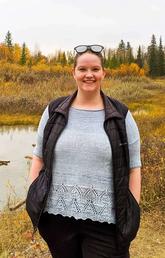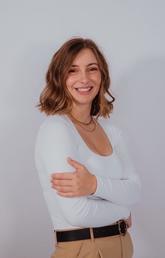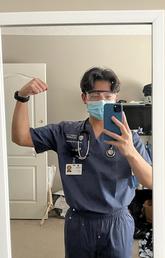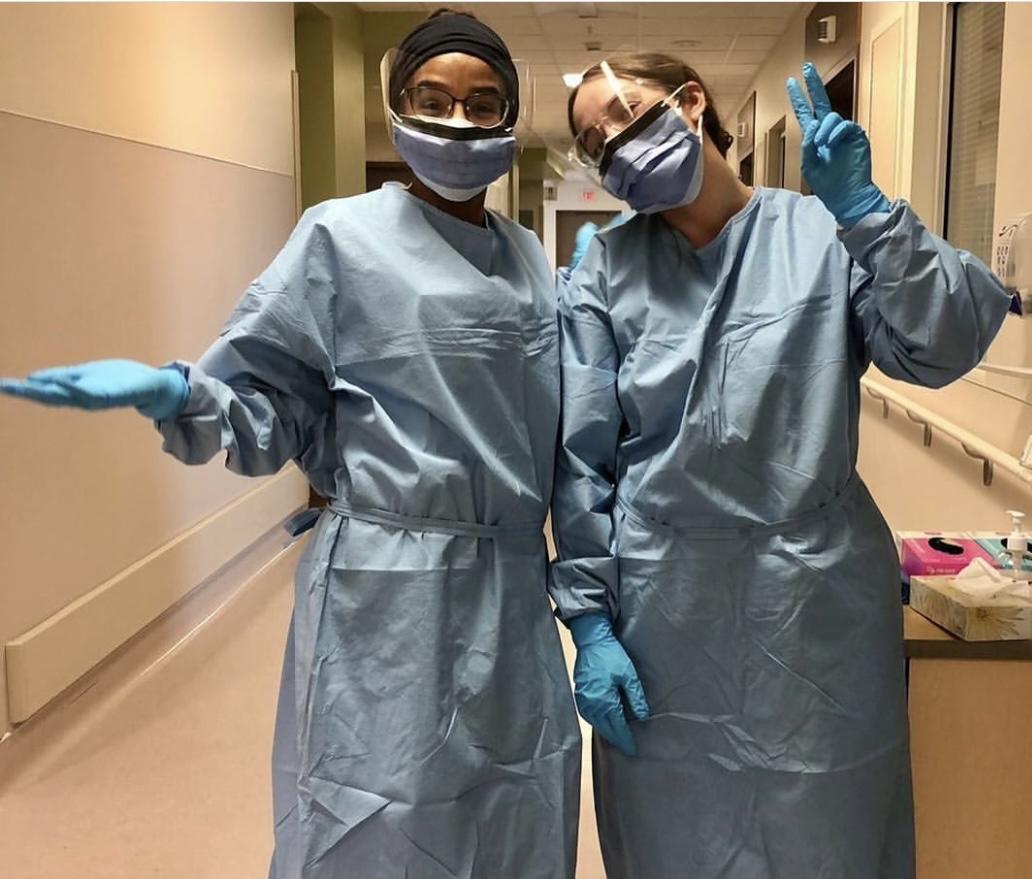
Aug. 19, 2022
Flex Friday: Harsimrit (Sim) Lakhyan
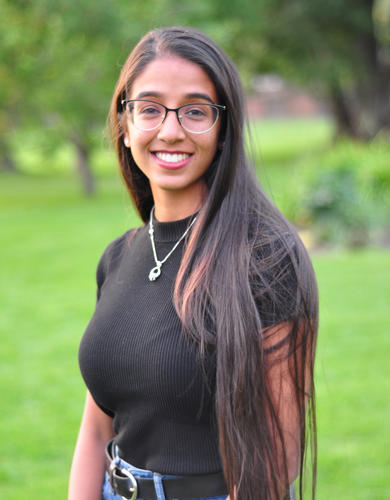
Happy Flex Friday! Meet Sim Lakhyan, a degree-holder student entering Term 8 this fall. Sim has been proudly recognized by the faculty for presenting a land acknowledgement on last year’s National Day for Truth and Reconciliation, and she is also a recipient of the faculty’s 2022 Inspirational Undergraduate Student Award.
Sim first began nursing with a degree in biology after graduating from UCalgary in 2019. Following a gap year, she returned to learn more about nursing and contribute to the future of health care.
How did you end up in nursing?
“When I was coming out of high school, it was really a coin toss between biology and nursing,” Sim said. “Biology won.” However, after two or three years of the degree, Sim realized she wasn’t enjoying her studies. “I just had to finish it out,” she explained. In her final year, Sim began her prerequisites to begin nursing.
When asked about how her biology background has supported a career in nursing, Sim explained: “The scientist in me is always wanting to know ‘why’ and ‘more.’ It isn’t necessarily the knowledge that has helped, but it’s more, ‘How does this happen the way it does? How does this work the way it does?’”
Sim is also currently conducting research with UCalgary Nursing associate professor-teaching Kara Sealock. Her knowledge of biology has further supported that project. “It’s an important part of nursing,” she said, “to continue your own development and help nursing, as a profession, advance.”
Speaking more about Sealock, Sim said: “She’s really, really nice. Super knowledgeable and passionate as a nurse. I met with Kara quite early. She asked me what area of nursing I wanted to go into and I was leaning more towards trauma and intensive care. She said to me, ‘I think you’re going to make a great ICU nurse.’”

Tell us more about your research.
“We’re looking to see how virtual simulation is used for nursing development and where the gaps are,” Sim explained. “This lays the foundation to ask for funding to develop these simulations.” She added that in the United States, the Critical Care Nursing Association has virtual simulations available to nurses through their website and their research aims to open similar opportunities for those in Canada.
How did you manage returning to school online?
“It was definitely harder because with making friends, you can’t just turn to the person next to you and borrow their pen to start a conversation. When it comes to talking in class, it was definitely challenging. In the first few semesters, people didn’t speak up as much,” she explained. “The cameras also started going off.
“You do get that Zoom fatigue,” Sim added. “I also referee soccer outside of school and sometimes those classes were also on Zoom.” She described that certain days could be particularly challenging, as she was spending up to eight hours a day on the computer.
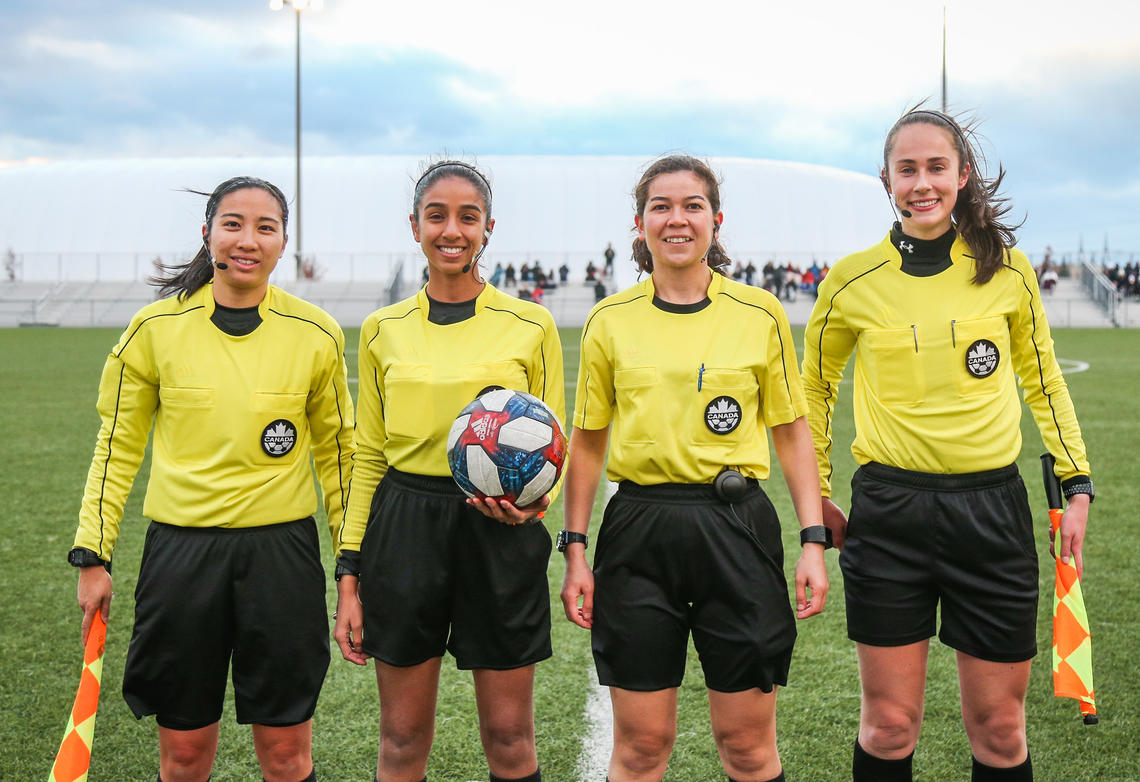
How have you balanced passions like soccer with nursing?
“The biggest challenge was during Term 5,” Sim admitted. “It was already a tough semester and I had to go to Toronto for a national competition.” She explained that although the competition aligned with Reading Week, she wasn’t able to use the week effectively.
“I think balance is being really honest and open with professors,” Sim advised and, after contacting her N485 professor, Dr. Jennifer Jackson (RN, PhD), she was able to make the most of the situation. “Jennifer was very sympathetic,” Sim explained. “I asked for a day or two and I think she gave me a week. It was ridiculously kind.
“Having that support from a professor meant I didn’t have to stress when I was doing this tournament. School went to the back of my mind and that allowed me to focus on what I was doing,” she adds, acknowledging that, at the tournament, her professor’s support allowed her to be achieve a gold medal. “I emailed Jennifer and sent her photos of the officiating crew.”
“It’s a lot of sacrificing too,” Sim said, having to make the most of her time, even while she was at the gym.
I would sit at the gym, and as I was stretching, I would have my laptop open. I would be doing essays or reading on my iPad, going over notes. I had special accommodations to record lectures, so I would play recordings on my way to the gym and on my way home.
“You have to be very disciplined,” Sim continued, “and I wasn’t always perfect at it. You just have to find ways to make sacrifices, and understand your priorities.”
How was returning to school after your gap year?
“It’s like when you take summer vacation for four months,” Sim described, although her summer break lasted eight months. However, she explained that completing so many assignments did prove to be an adjustment. “I changed the way I studied, just because it’s different content. I did more group studying with this degree.” Sim found that it was helpful to teach her classmates the course content and have them ask questions in return.
How was your clinical experience?
“Definitely a highlight was Term 3, where I developed the land acknowledgement,” Sim said. Her clinical group worked with an Indigenous population and was taught by Louise Baptiste, former faculty director of Indigenous Initiatives. “The funny story is that during (associate professor-teaching) Heather Bensler’s Imogene project, we realized right at the 20-minute marker that we’d done our entire presentation without a land acknowledgement,” she explained. “And we were the Indigenous group.”
After asking their professor if their group could lead the class in the land acknowledgement, Sim began writing it out. She presented her acknowledgement in at the faculty’s event in September 2021, on Truth and Reconciliation Day. Sim was also able to participate in a teaching and learning conference with Baptiste at the TFDL, adding that the feedback she received was incredibly positive. “I got a couple messages that said, ‘This is the first land acknowledgement that I’ve felt has reflected myself.’ That was coming from people of Indigenous backgrounds.”
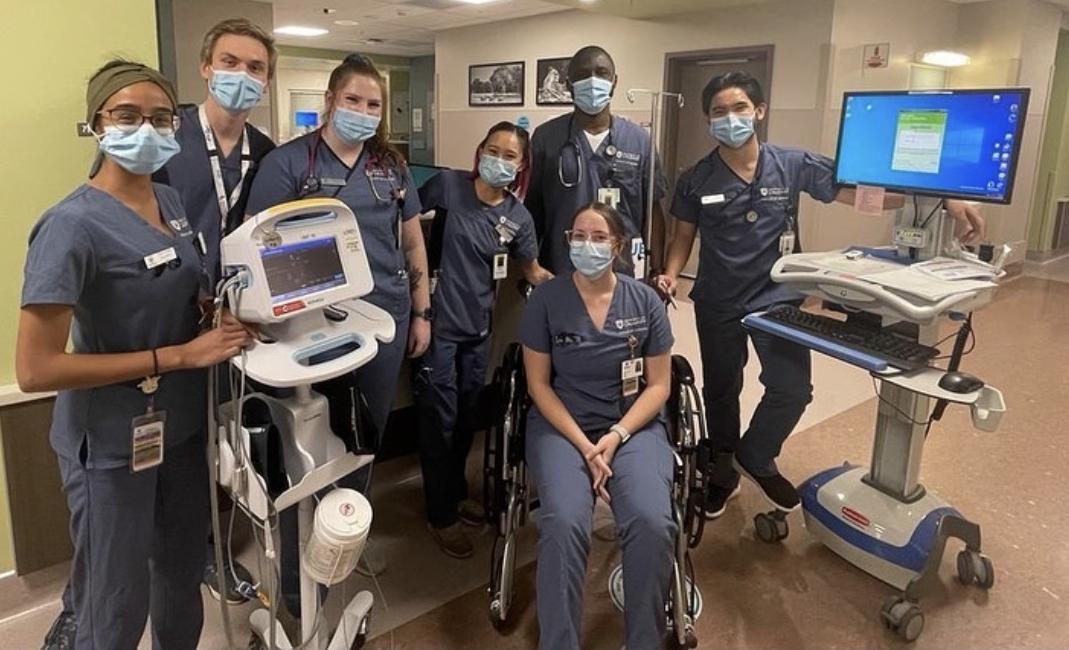
Sim explained that another big moment was when she lost her first patient in Term 7. “This lady was very, very sweet. I had her for three days, one-on-one, and I got to really connect with her and her husband,” she said. “They had one of those love stories where they’d been together for eons, they were long-distance for a bit, he won her over with his charm…It was a very cute, romantic story.”
Sim’s patient unfortunately passed away because of her health condition, although she remembered feeling a lot of love in the room for her.
“I would check in on them, and the husband would always walk by and tease me. One day I was mock-charge nurse,” Sim explained, “And we had a joke about fentanyl, because I gave them fentanyl teaching. He’d ask, ‘where’s my fentanyl?’ and I always said, ‘your fentanyl’s coming,’” she laughed. “He’s doing this to me while I’m sitting next to the actual charge nurse, who has no idea what this joke is.”
Remembering her patient’s husband, Sim said: “He was just about to leave the night his wife passed and he saw me. He asked, ‘may I hug you?’ and I said, ‘yes, please. I need a hug.’” Sim explained that while it was hard to lose this patient, it was nice to know her clinical group had made that impact. "We didn’t take away from their time as a family, but we were able to contribute."
Have you developed a grieving process while nursing?
“I don’t have a process in place,” Sim said. “I think anybody who says that is a liar. When I found out, I was in the med room and I just let myself cry.” Her clinical instructor provided lots of support and she eventually explained the situation to her primary nurse. “I told her ‘I’m not doing anything else with my patients right now. My patient just passed away and I need a second.’ A lot of nurses were really understanding with that.”
When asked about how she grieved her patient, Sim explained: “For me, it was just recognition and awareness that this had impacted me. While I had bonded with this patient, I had maintained a boundary. So the grief process happens a lot quicker and you find ways to accept the death.”
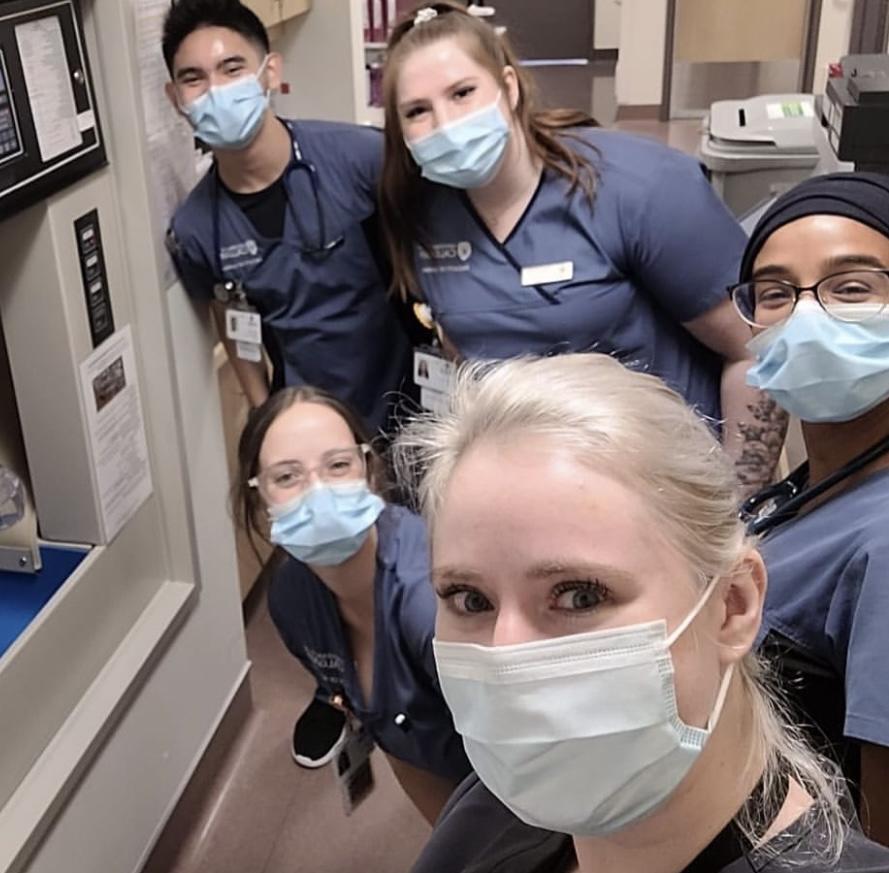
Have you ever struggled with different cultures across units?
“There were a couple nurses who had that, ‘eat their young’ kind of vibe,” Sim admitted. However, she explained that her instructors were very diligent about not pairing students with these nurses.
“We talk about advocacy, as nurses, for patients,” she said. "I think nursing instructors also need to have that advocacy for their students. And a lot of them do.”
Interestingly however, Sim described that her status as a student often became a barrier when it came to working with other nurses. For example, she found that administering medicine could be a very lengthy process since students require several additional safety checks. So, when students were busy, Sim felt it was helpful to have nurses who could provide more efficient patient support.
“There were times when you would ask the primary nurse to help and they would say, ‘go do it later,’” Sim recalled. “I remember being really frustrated, thinking this patient needs the meds now.” She also remembered a time when a nurse was booking her nail appointment while her student ran around the unit. “Those nurses still exist. I think some of it’s burnout. Some of it is them thinking, ‘You have to learn how to manage this.’” Ultimately, Sim agreed that the bulk of nurses still want to support their students.
What type of nursing is in your future?
Sim is highly interested in the ICU. “I like the fact that you get to be one-on-one and know every little detail about your patient,” she said. Sim explained that with higher acuity, she feels her background in biology will be especially helpful. “Higher acuity generally means more medically complex cases.
“Another important part about ICU is the family,” she added. “This is a really scary moment for patients and their families. You get that time with them.”
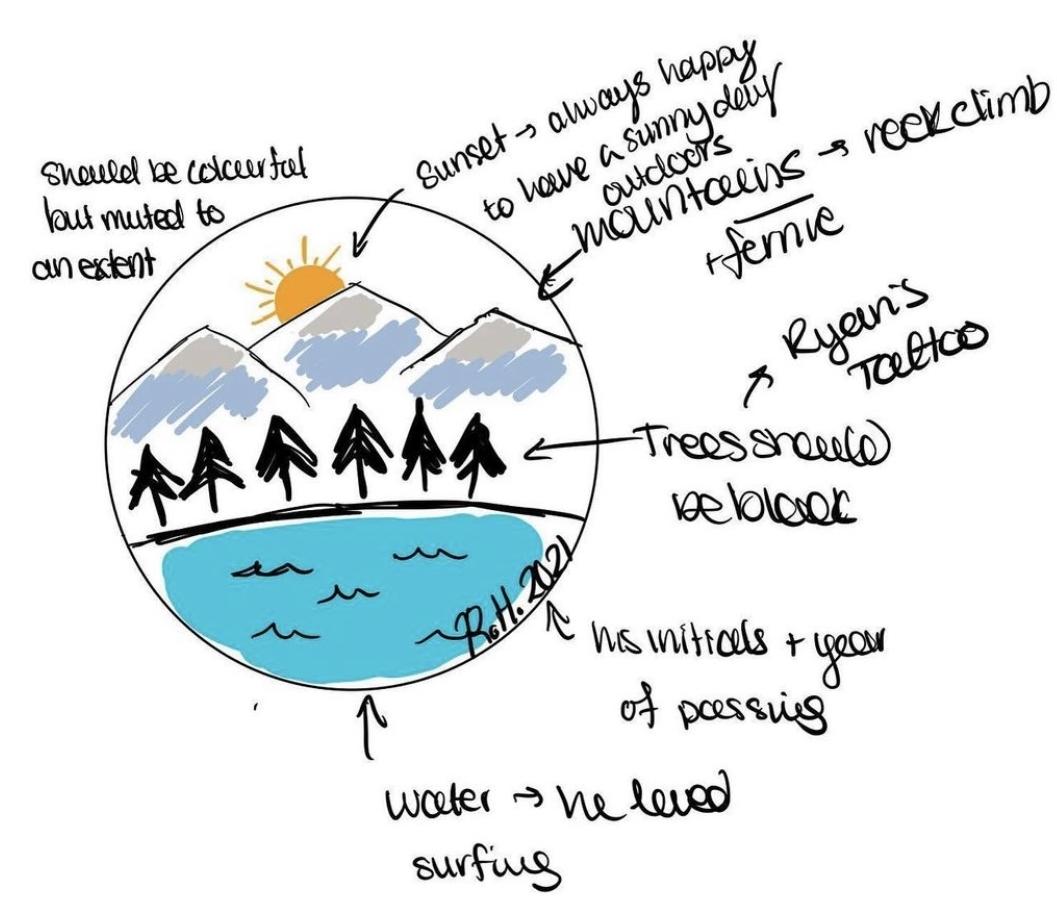
Draft of memorial pin for Ryan Hunter designed by Lakhyan, Paige Walker and Sonny Naim.
What have been the biggest challenges throughout school?
“I was in the clinical group with Ryan Hunter who passed away,” Sim said. She was one of three students who created the memorial pin for their classmate. “You see a lot of nurses on units who have pins. They’re a common nursing item to share what you believe in.”
Although their group initially wore black ribbons to commemorate Ryan, she felt he deserved something more impactful. “I thought a pin was a really great way for us to keep him with us as we go onto the floor. Losing him in that semester was very challenging. I also lost a friend in Term 4, so it was a lot.”
Sim described observing many similarities between Ryan and her friend. “The funny thing was, when I met Ryan the first day, I thought, ‘he reminds me of Nate,’” she explained. “It was really hard for those two deaths to be so close.” She said professors were very understanding and that she received lots of support from the faculty.
How do you think you’ve changed since beginning nursing?
“I think I’ve learned a lot,” Sim said. “I think I’m more compassionate, more understanding about where patients are, specifically patients with addictions. I always found it very hard to understand why they do what they’re doing to their bodies. But I think in nursing, there’s a lot of focus on not needing to know the why and that’s okay. I’ve gotten a lot better at it.”
Sim explained her expectations of nursing have also changed throughout the degree. She’s learned a lot about how nursing is much more diverse than just being at the bedside. “I knew it was a pretty holistic job, but I didn’t realize how holistic it could be,” she said.
Nurses do a lot. Our scope of practice, compared to a lot of other professions, is very big.
Sim also realized how much face-to-face time nurses have with patients. “You are the voice for the patient.”
What would you tell your younger self about nursing?
“Start understanding the pathophysiology of diseases a lot earlier and start doing the back work of that a lot earlier,” Sim advised. “A little bit will help.”
Sim also comments on being wary of the glamourization of nursing and specifically “higher-risk” departments like emergency and ICU. “Glamour isn’t everything in nursing. Have an open mind at the start and once you’re in Term 8, you may really know where you want to go.”
Additionally, Sim emphasizes the importance of making connections with nursing professors. “They’re not just your professors in nursing, they’re your colleagues. Or they will be.” Sim was also a recipient of the 2022 Pursuit of Excellence Award as the year’s most Inspirational Undergraduate Student and she specifically attributes this accomplishment to having developed strong relationships within the faculty.
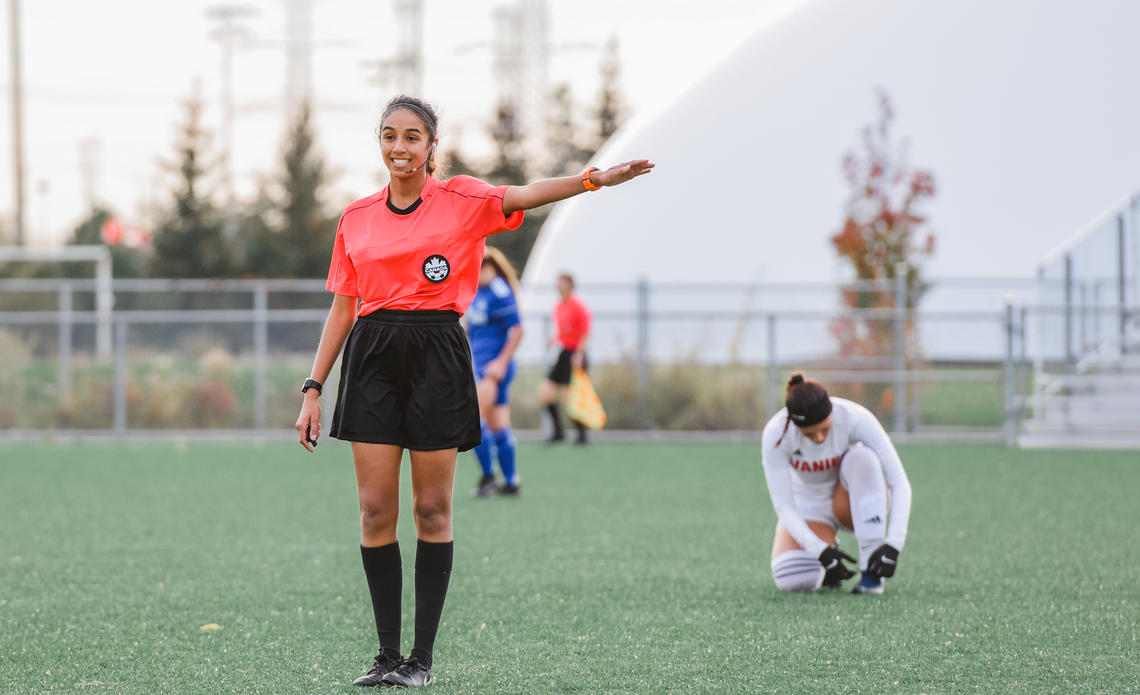
Rapid fire!
Best place to study on campus? “The atrium.”
What have you done this summer? “My research project, reviewing Term 5 and 6, and lots of refereeing.”
Self-care or hobbies? “Soccer. It’s a career where I’m still with people, but it’s a polar opposite to nursing.”
Biggest role models? “Within nursing, definitely Kara has been a big help. Megan Keszler: she never taught me in clinical, but she’s always answering my questions. Jennifer Jackson has been my biggest cheerleader in so many ways. Heather Bensler has also been a great help. And (former instructor) Carla Ferreira. She makes everyone feel like an equal.”
To be featured in Flex Friday, email us at uns@ucalgary.ca or DM us on Instagram @ucalgary_uns!

